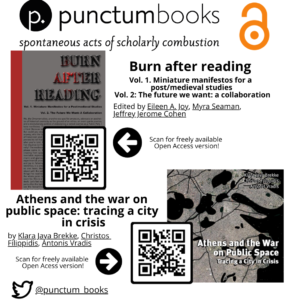Publishing gems: diamond open access and climate justice
In this post, we’d like to introduce you to developments in diamond open access publishing, which is free for authors and readers and typically scholar-led and supported by institutions. We offer this not only for the information it provides but also as a way to reflect on how researchers and librarians are working together to develop new models to support publishing.
Last year I wrote about OA Diamond Study commissioned by cOAlition S which analysed the profile of diamond journal publishing worldwide and the benefits and obstacles to sustainable publishing and how to overcome them. We thought it was time to dispel some myths and discuss how libraries and researchers can engage and support the community and services who share their values and help to forge equitable pathways to the rapid sharing of research needed to tackle climate change.
“[M]any librarians support the ethos of diamond Open Access publishing, believing that all
research should be made freely available” (Rebecca Wojturska, The Bookseller).
Myth: Open Access journals with article processing charges are essential
Because of the way OA has evolved in the U.K. and successive governments’ priority to support commercial publishers in the transition to OA it can sometimes appear that the paid route is a gold standard. However, other parts of the ecosystem have been developing alongside this trend and many innovative diamond models and partnerships are emerging such as St Andrews Open Journal System, the re-branded Edinburgh Open Journal System Edinburgh Diamond, and the Open Library of Humanities.
Myth: Monographs can’t be diamond
Research papers in journals are the most common type of research output, but monographs remain important across disciplines and more so in the humanities. This creates a conundrum for scholars who would like to see their work widely read but can’t afford the book processing charges of legacy publishing.
Innovators like Punctum Books and initiatives like Martin Paul Eve’s Opening the Future model with COPIM are filling this gap and growing the diamond monograph infrastructure to support scholars in the humanities and social sciences. St Andrews contributes to the Opening the Future collective subscription model for monographs published by the Central European Press and Liverpool University Press. And St Andrews researcher Tomasz Kamusella’s book ‘Words in Space and Time’ was the seminal launch title for the CEU Press opening the future program.

Punctum Books is also a well-established diamond OA publisher, and the St Andrews library catalogue includes titles like Burn After Reading and Athens and the War on Public Space featuring the work of St Andrews authors. Diamond, like Open Access in general, promotes transparency and fairness, Punctum publishes its production costs for instance.
These publishers promote a publishing ecosystem that is fairer and brings in more voices that might otherwise be priced out. The community business models also foster a collaborative approach that democratises sponsorship. There are benefits for researchers too, as these models remove the funding anxiety and allows more focus on what matters.
There are also initiatives worldwide to support APC-free publishing notably Scientific Electronic Library Online in Brazil (ScIELO) and Network of Scientific Journals from Latin America, Caribbean, Spain, Portugal and Mexico (Redalyc). Diamond really is growing as a viable alternative to APC and BPC based revenue. It should be noted however that not all publishers are able to make this kind of business model switch, and there is still a case to be made for APCs and BPCs especially where there is grant money earmarked for this purpose. But a fair system needs to work for everyone and this is why the University supports a globally sustainable and equitable publishing ecosystem, one that makes the best use of resources, and promotes innovation and community approaches.